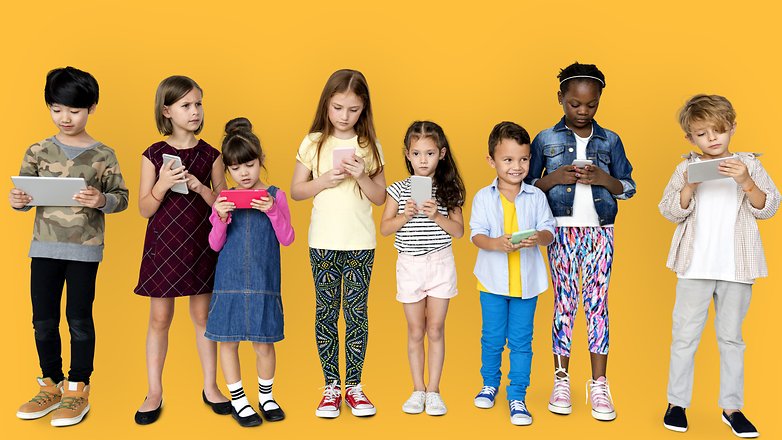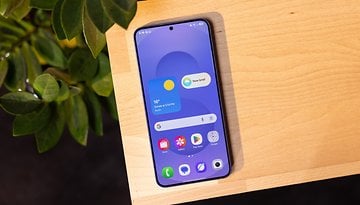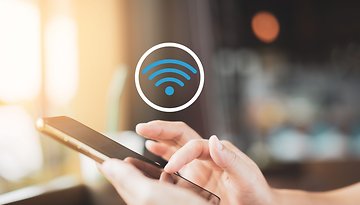Tech in schools: do smartphones make students stupid?


"If you allow your child to swipe screens all the time at kindergarten age, don't be surprised if your child ends up cleaning." The last sentence from an interview with the psychologist Manfred Spitzer in the German newspaper, Die Welt, is his most concise. But should we really lock up our smartphones when children are around?
- Best parental control apps to keep your kid safe in 2018
- Best fitness trackers for kids: for their health and yours
In the interview, Spitzer emphasizes that in his eyes it would be important to ban smartphones completely from schools. "Students get better by banning smartphones," says the psychologist, referring to a British study in which around 130,000 students were examined. The PISA studies in Germany have also shown in recent years that the more invested in the digitization of schools, the worse the pupils' performance became.
Spitzer continues: "I am against the federal government spending 5 billion on demonstrably poorer education within the framework of the Education Pact, depriving the federal states of educational sovereignty and passing it on to California and the richest companies in the world."
In fact, there are many studies and neuroscientists that prove that picture books and literature increase creativity and promote the language center as well as the visual part of the brain. Videos and screen can't do that. In addition, conditions such as nearsightedness and postural deformities are spreading due to excessive use of smartphones.
Spitzer looks to Asia for evidence of this: "In South Korea, the country that produces the most smartphones worldwide, 100 percent of all children and young people own a smartphone. And 95 percent are nearsighted. This is an epidemic of acquired visual impairment. South Korea now has laws that protect younger users from the consequences of excessive smartphone use. We're a long way from that (in Germany)."
Criticism of Spitzer's work
Spitzer is, it is important to point out, not undisputed among experts. Colleagues and critics complain that the psychologist is out for headlines and quotes individual details from studies without referring to the overall context. This creates needless fear and insecurity, but also plenty of 'shares' from technophobes. As a medical student, philosopher and psychologist as well as medical director of the Psychiatric University Clinic in Ulm since 1998, his professional competence cannot be denied. One should, therefore, listen to the man but also draw one's own conclusions from what he says in the media.

Where's the middle ground?
I have two children of my own, four and two years old. They're still too young to have their own smartphone, of course, and apart from a maximum of 45 minutes of children's programming on the tablet, we're keeping the boys pretty far away from displays, television and mobile phones. This is not necessarily a matter of principle, but rather of feeling, and every family does it differently. I do not take the liberty of making a blanket judgement, all parents and their children have to find the best way that works for them.
At the same time, I have been asking myself for quite some time how best to introduce children to modern media and technical devices in order to show them the possibilities and teach them how to use them on the one hand, but not to overburden them on the other. The parents among our readers can certainly empathize with this, and I am quite grateful for wise advice at this point, because time is pressing, the boys are getting older and older and we automatically get closer to having to make these decisions.
The bottom line is that Manfred Spitzer's approach is a bit too black-and-white for me, even though, unlike him, I am not a psychologist and can therefore not allow myself a sound professional judgement. 'Television makes kids stupid' - there is certainly something true about the saying, and I am firmly convinced that too much media consumption is not good for children - nor for adults, by the way. But the genie is out of the bottle, and we can hardly get it back in now. So we should find good ways to deal with the issue since smartphones and displays are not going away.
A total ban will not work. Think back to the time when you were schoolkids. If someone forbids something as tempting as a smartphone, would you have accepted it? There you go. Then we'd better show the kids how to do it right.
What do you think is the right way for children to handle smartphones, tablets and the like? Do you have any advice for this editor from your own experience? Share it below.




















In fact, I do not think that phones make students stupider, it all very much depends on the person himself, what content he will watch, and so on. The very essence of the phone allows you to learn better, faster, and self-develop in any of the areas.
YES!
I think for High schools PC's/ Laptops are great for Middle schools they should be used less often and should not be used in Elementary schools.
Silicon valley "elite" types, send their kids to "tech free" schools.
www.educationnews.org/technology/silicon-valley-tech-execs-sending-kids-to-tech-free-schools/
I'm certainly against distracting tech devices in school. Parents who "need" access to a child can call the school office and the phone can be switched, and same goes for Facebook: if FB, etc. need to urgently notify a child they can call the school office and explain to the Vice-Principal exactly what's so important.
Nice information.
I think too much technology is very bad in physiological and social/psychological ways. It causes nearsightedness, back-pains(bad posture), neck-pains and carpal tunnels (with computers. It can cause people to shelter themselves on a computer or smartphone when faced with an anxious or awkard moments, some people tend to prefer the digital world/friends than the real one(s), etc. It certainly has its advantages as well, so many that it could overweigh the bad aspects.
Forbidding the technology is worse than letting them have their way. This is different than having no access to it. If either you don't let your children touch them or/and the school doesn't allow them, the technology will be around and this will eventually make them too curious as to why someone needs to have them close by or they have too much contact with it. Obviously they can rebel or find a way to know why its so addicting to have and to use them.
The technology must be taught as a tool, not as a reward or something they should find company when bored. This is the hardest thing to teach and where we would all fail. (Haven't found a way or a case where one has succeded in teaching this to a child).
I think there should be a middle ground as well.